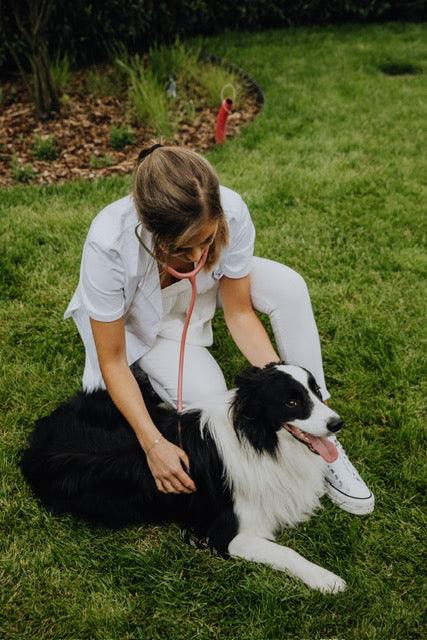As Part of Pet Cancer Awareness Month
As pet lovers, we want nothing more than to keep our furry friends healthy and happy. Unfortunately, cancer can also affect dogs, and just like in humans, early detection is crucial. By recognizing the early signs, you can take timely action and improve your dog's quality of life. As part of Pet Cancer Awareness Month, we share the most common symptoms to look out for.
Why Early Detection Is Important
Cancer in dogs is not uncommon; approximately 1 in 4 dogs will face some form of cancer during their lifetime. Early diagnosis can make a world of difference in the treatment process, life expectancy, and your dog's overall well-being.
However, many cancer symptoms overlap with other conditions, making it even more important to stay alert and consult your veterinarian promptly.
The Most Common Early Signs of Cancer in Dogs
Here are some signs that could indicate a potential problem:
1. Unexplained Lumps or Swellings
Regularly check your dog's body for lumps or hard spots. Not every lump is dangerous, but it's wise to consult a veterinarian if you find one.
2. Weight Loss Without an Apparent Reason
Drastic weight loss, despite a normal eating pattern, could be a sign of an underlying health issue like cancer.
3. Changes in Appetite
Dogs with cancer may lose their appetite or, in some cases, eat more. Unexplained changes in their eating habits warrant attention.
4. Abnormal Behavior or Reduced Energy
If your dog is less active, refuses to play, or appears more fatigued, it could indicate pain or discomfort. Consider natural supplements to support vitality.
5. Difficulty Breathing, Bowel Movements, or Urination
Trouble breathing, prolonged diarrhea, or blood in the urine or stool could point to cancers affecting organs.
6. Limping or Stiffness
Bone cancer may manifest as lameness or difficulty moving. Although other causes are possible, it’s wise to have this checked.
7. Vomiting and Nausea
Frequent vomiting or signs of nausea, such as excessive lip licking, grass eating, or drooling, may be symptoms of cancer. Tumors in the gastrointestinal tract or other organs can cause these issues. Consult your vet if your dog vomits regularly or seems nauseous.
What Should You Do if You Notice Symptoms?
If you notice one or more of these signs, it's essential to consult a veterinarian as soon as possible. They can determine if cancer or another condition is present. Early detection can expand treatment options, from surgical removal to chemotherapy or supportive care.
How Can You Prevent Cancer?
While cancer isn’t always preventable, you can support your dog’s health:
- Healthy Nutrition: Opt for a balanced diet with high-quality ingredients, like healthy dog snacks from BraveBites®. Good nutrition can strengthen the immune system and promote a healthy digestive system. Prebiotics for dogs, such as those in BraveBites®, may also contribute to a healthier gut.
- Regular Check-ups: Schedule annual vet check-ups, even if your dog seems healthy.
- Exercise and Weight Management: Keep your dog active and maintain a healthy weight. Obesity can increase the risk of certain cancers.
Creating Awareness Together During Pet Cancer Awareness Month
During Pet Cancer Awareness Month, we aim to raise awareness of the signs that can save lives. By staying vigilant and acting promptly, you give your dog the best chance at a long, happy life.
Do you have questions about nutrition or how BraveBites® can support your dog’s health? Feel free to contact us! Together, we stand strong for the health of our loyal friends.
Be alert. Take care. Share awareness.




Comments (0)
There are no comments for this article. Be the first one to leave a message!